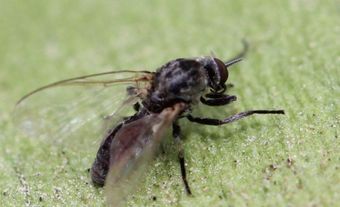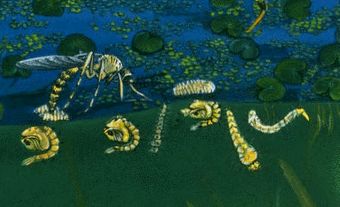
The caddisfly is a small (1.5-40 mm), drab insect of order Trichoptera ["hairy wings"]. Adults have long legs and antennae, large, compound eyes, rudimentary mouthparts and 2 pairs of veined, hairy wings. At rest, wings are held rooflike over the body.
Nearly 550 species are known from Canada; world total may be over 10 000. Larvae are common in most freshwater habitats.
Those of the most familiar species live in a portable case of plant fragments or mineral particles held together by silk. They feed principally on decaying organic matter. Others spin silken nets which filter food from water currents, or are free-ranging predators.
One to several years are spent as larvae. Larvae transform to adults through a nonfeeding pupal stage, spent in a sealed case in the water. Adults swim to the surface and discard the pupal skin. They are generally nocturnal, with a terrestrial existence lasting a few weeks.

 Share on Facebook
Share on Facebook Share on X
Share on X Share by Email
Share by Email Share on Google Classroom
Share on Google Classroom



